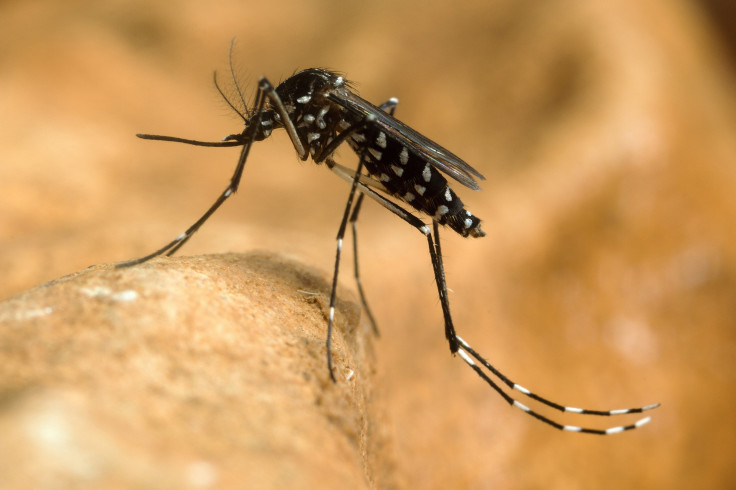Mosquito Control In Florida Keys: Could Genetically Modified Mosquitoes Stop Spread Of Vector-Borne Disease?

Although they’re rarely heard of in the United States, Dengue fever and the Chikungunya virus are both widespread mosquito-borne diseases in the tropical regions of Africa, Asia, and the Americas. Just last September, El Salvador reported almost 30,000 cases of Chikungunya, which made its way to the Americas from Africa in December 2013. As climate change warms parts of the planet further from the equator, scientists are scrambling to find ways to stop the viruses from spreading. British biotech firm Oxitec believes genetically modified mosquitoes are the solution, and with the U.S. being particularly vulnerable to their spread, it wants to start releasing them in the Florida Keys. But first it must gain approval from the Food and Drug Administration (FDA) as well as the Key’s residents.
By genetically modifying the DNA of the Aedes aegypti mosquito — you might recognize it by its tiger stripes — to carry a “lethal gene,” scientists believe they’ll be able to stop the viruses from spreading by essentially killing off the mosquitoes as they procreate. The genetically modified DNA was made using pieces of proteins from E. coli bacteria and the herpes virus, and genes from cabbage and coral. Combined, the DNA is intended to pass only from genetically modified males to the wild females that feed on human blood, the Associated Press reported. After the larvae hatch from their eggs, the lethal gene that’s passed down kills them.
It sounds like something that would work, but with a GMO (genetically modified organism) label on the mosquitoes has made people wary of the effects, should one lone GMO female mosquito bite a human. “I think the science is fine, they definitely can kill mosquitoes, but the GMO issue still sticks as something of a thorny issue for the general public,” Phil Lounibos, who studies mosquito control and the Florida Medical Entomology Lab, told the AP. “It’s not even so much about the science — you can’t go ahead with this if public opinion is negative.”
That public opinion has already manifested itself in a Change.org petition that’s garnered nearly 140,000 signatures. But Oxitec says its mosquitoes won’t harm humans, basing those claims on over 70 million mosquitoes that have already been released in several countries, including Brazil and the Cayman Islands. Over three million mosquitoes were released into the Cayman Islands in 2012, resulting in a 96 percent decrease of the targeted bugs over six months, the AP reported.
Still, Oxitec and supporters of the mosquitoes will have to work harder to gain public support. Some residents don’t see either disease as a significant risk to the area, despite their appearances in California in 2013 and in Florida last year. "If I knew that this was a real risk and lives could be saved, that would make sense," Marilyn Smith, a resident of Key Haven, told the AP. "But there are no problems. Why are we trying to fix it? Why are we being used as the experiment, the guinea pigs, just to see what happens?"
The FDA’s spokeswoman Theresa Eisenmen told the AP there wouldn’t be any field tests until the agency had reviewed all the necessary information. But even if that works out, getting residents’ approval will be another obstacle for Oxitec — showing the same data it shows the FDA may be key.
Chikungunya and dengue similar diseases in that they both cause sudden onset of fever and severe muscle and joint pain. While they haven’t yet been widespread in areas besides the tropics, experts see the U.S. and Europe as particularly vulnerable to their spread. In the Keys, the Aedes aegypti mosquitoes have already become immune to four of the six pesticides used against them, meaning other forms of control must be investigated.



























